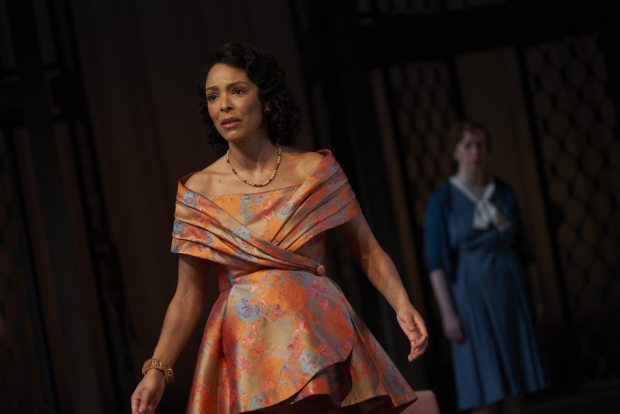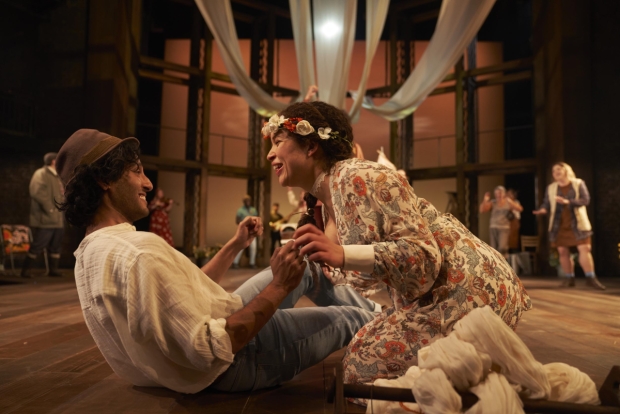
© Topher McGrillis
The RSC has been very keen to get its version of Shakespeare's problematic late play seen. When a stage version planned for 2020 was cancelled, it kept the original cast and concept and the BBC stepped in to offer a slot as part of its excellent Lights Up season. This marks the first time the RSC will ever have premiered a production on screen.
What's odd then, is that director Erica Whyman seems to have no particular view of the play she wants to get across. Maybe I am missing something, but short of shifting the action, first to the 1950s when the play opens in Sicily and the jealous Leontes accuses his wife Hermione of having an affair with his best friend, and then to 16 years later in the swinging '60s in Bohemia, there is no radical rethinking on offer.
There are gimmicks (pop songs for the shepherds, the peddlar Autolycus on a Vespa scooter, a black and white news broadcast of Hermione's trial for adultery). There are even odd moments of inspiration such as the one where Hermione sweeps a great white silk shroud out of the air and magics it around her abandoned daughter, Perdita. Tom Piper's set, a screen of grilles that open and close according to the mood – dark and imprisoning for the early part, airy when hope begins to spring – is simple but effective.

© Topher McGrillis
But there is no arc of understanding that suggests how we should treat this troublesome yet uplifting drama and make sense of its great swings of sense and sentiment. Is Leontes a petty tyrant or a man gone mad? Does Hermione ever forgive him? Can the lost child who is found ever heal the wounds? I really don't have much sense by the close.
Worst of all, though the play has been restaged for TV, no one seems to have thought much about how it will come over on screen. There is a lot of theatrical shouting and gesturing. Joseph Koska's Leontes seems to be addressing some of his mad soliloquies and his dictatorial demands directly to camera; at other times he looks at a non-existent audience. There is a lack of focus which undermines the performance. Good ideas – the news reel, cinefilm of the shepherds' party at the sheep shearing – are used inconsistently. The most famous stage direction in Shakespeare – "exit, pursued by a bear" – which might have benefited from TV, is reduced to a stylised dance.
There are pluses. Kemi-Bo Jacobs' as Hermione has a dignity and directness that a lot of the action around her lacks; Georgia Landers and Assad Zaman find warmth and delicacy in their playing of the young lovers Perdita and Florizel. And William Grint, one of two D/deaf actors in the production, is a joy as the hopeless and hapless young shepherd. He and Bea Webster as Emilia, use BSL to communicate; the sign language is beautifully integrated into the production and there is also a full signed version available online.
That is another plus, making Shakespeare as widely available as possible. But what a shame that this is in other respects so old-fashioned and under-cooked a production. I love this knotty, difficult play and am always hoping for new insights into its poetry. This feels like an opportunity missed.












